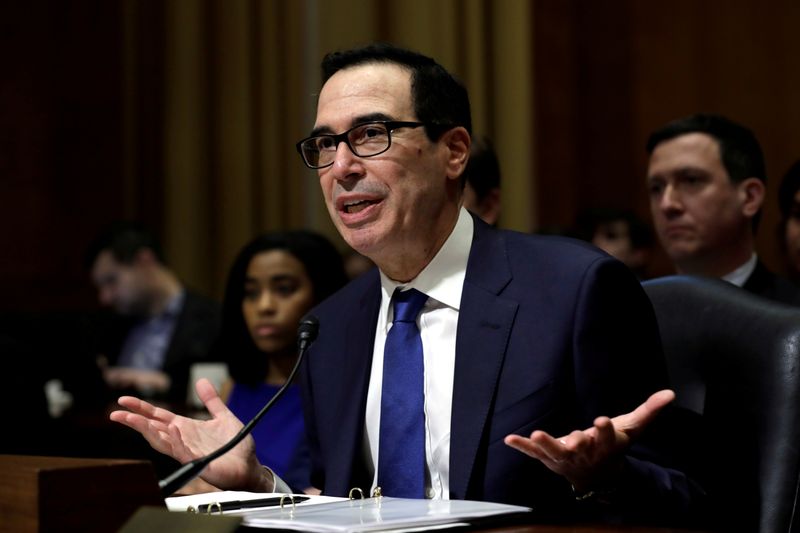By Doina Chiacu and David Lawder
WASHINGTON (Reuters) - U.S. Treasury Secretary Steven Mnuchin on Monday urged the Senate to quickly pass an economic relief bill that has grown to $2 trillion, saying it would keep small businesses, airlines and other firms from shedding workers as the coronavirus halts commerce.
"This is a massive liquidity program," Mnuchin told Fox Business Network in an interview, saying the approximately $2 trillion package, along with actions by the Federal Reserve, would provide $4 trillion in potential market liquidity.
While noting that details were still being hammered out, Mnuchin urged the U.S. Senate pass the measure later on Monday. He said people and businesses could get cash within the next two to three weeks and pleaded with companies to hold on and not fire their workers.
Weekend negotiations ended with no deal acceptable to both Democrats and Republicans, and Mnuchin was headed back to Capitol Hill on Monday to work on a package that balanced the interests of large corporations and small business, governments and the health care system.
The proposed plan would offer government loans for small companies of 500 employees or less to pay two months of salaries and forgive the debt if they rehire the workers, Mnuchin said.
"We are encouraging small businesses: Make sure you hire people back. If you haven't let people go, don't let people go. Because we are providing you necessary liquidity, and we're going to get that money out fast," he said.
A provision to assist domestic airlines was still being negotiated, Mnuchin said, adding that the measure was not a bailout for big corporations: "It is not a slush fund."
He said that aid would be granted "on market terms" and could include the government taking equity stakes in airlines.
Mnuchin's comments came after the U.S. Federal Reserve on Monday launched an extraordinary array of programs to offset the "severe disruptions" to the economy caused by the coronavirus outbreak..
The Fed's announcement failed to lift U.S. stocks, however, and the S&P 500 was down more than 1% in morning trade.

"I think we're very close. We need to get this done today," Mnuchin told CNBC in a separate interview.